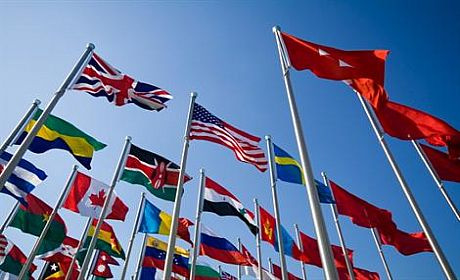Iran and Investment in China, Russia, India

It seems that international relations have entered the era of maturity. One of the characteristics of this era is the management of relations and controlling crises through separation, prioritization and giving different weights to problems between countries in order to study the benefits and costs in the foreign policy phenomena. This means that the unilateral impact of foreign policy over international relations and vice versa has been transformed into a bilateral equation of effects of foreign policy and international relations.
This means that, under the present conditions, other countries cannot solely define their own foreign policy lines, but that international relations impose certain lines and characteristics, whether positive or negative, on the trend of the foreign policy of countries. At the same time, the foreign policy of a country affects the formation and the speed of changes in the international trend and there is a bilateral interaction between foreign policy and international relations which forms global policy. If we look at the interaction between the US and Russia with regard to the issue of Ukraine with this hypothesis, we will realize why there is no possibility of another cold war. The reason is that both the US and Russia have weighed the problems and considered the benefits and costs of these issues and managed the differences and have not allowed these differences to be expanded to all the issues which exist between these two countries. But the impossibility of the formation of a cold war will not remove the responsibility of the foreign policy of the Islamic Republic of Iran to take advantage of these conditions to safeguard its vital interests.
Compared to what happened in the previous administration and the destruction which was left for this government in the foreign policy scene, the situation of Iran’s foreign policy has improved in the new administration. The 11th administration must not be expected to make fundamental and strategic changes in foreign policy because as I have previously written Iran’s foreign policy has numerous options and paths to achieve the vital national interests of the country and also to establish regional and global balance. But in the present atmosphere, the number of options and means of achieving them is no longer important; what is important is the regional and global impacts of each path, its reflection on Iran’s strategies and decisions and the ground which it provides for Iran’s future strategies. Under the present global conditions and Iran’s geopolitical situation, any movement will not be limited to regional geography. On the contrary, Iran’s foreign policy will be affected by the regional and global developments and also the extra-regional variables.
In that case, Iran needs to create an atmosphere in order to maximize this impact. Today, borders and geography do not play major roles in the formation of politico-economic blocs and the expansion of different cooperation within regional organizations and plans are paid attention to beyond its geographical concept, including the Conference on Interaction and Confidence Building Measures in Asia (CICA), which was formed two decades ago. If Iran’s presence in this summit and the measures taken in this regard are considered seriously and strategically and are pursued by planning and appointing a special office, then it could prepare the mentioned atmosphere to impact Iran’s foreign policy in regional and global interactions. Establishing strategic relations with China, Russia and India could be one of the strategic options of the Islamic Republic of Iran and will considerably increase our country’s weight in the world.

